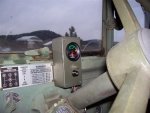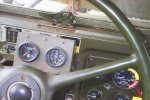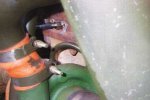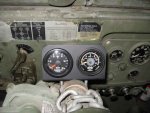M215
Member
- 478
- 3
- 18
- Location
- Spotsylvania, Virginia
Hello SS,
Have some questions about installing a pyrometer on the M35A2. I'm confused on how the probe is connected to the gauge, they all appear to have electrical connections on the backs of the gauges. Are these available with mechanical connections, if so were can they be purchased? I ordered a pyro kit from a speed & custom shop, specified that it needed to be a mechanical set up. Unit arrived with only electrical connections, I checked with the manufacturer and it would not work with 24v. The ISSPRO gauges that appear on Ebay all have the same electrical connections.
Currently the exhaust manifold is off during a head gasket change out, I had the manifold drilled and tapped 1/8" NPT, hope that was the correct size.
Sorry if this has been covered before.
I appreciate any help, Karl
Have some questions about installing a pyrometer on the M35A2. I'm confused on how the probe is connected to the gauge, they all appear to have electrical connections on the backs of the gauges. Are these available with mechanical connections, if so were can they be purchased? I ordered a pyro kit from a speed & custom shop, specified that it needed to be a mechanical set up. Unit arrived with only electrical connections, I checked with the manufacturer and it would not work with 24v. The ISSPRO gauges that appear on Ebay all have the same electrical connections.
Currently the exhaust manifold is off during a head gasket change out, I had the manifold drilled and tapped 1/8" NPT, hope that was the correct size.
Sorry if this has been covered before.
I appreciate any help, Karl






